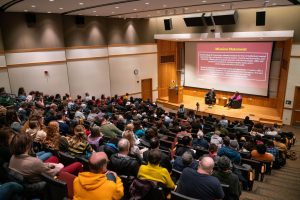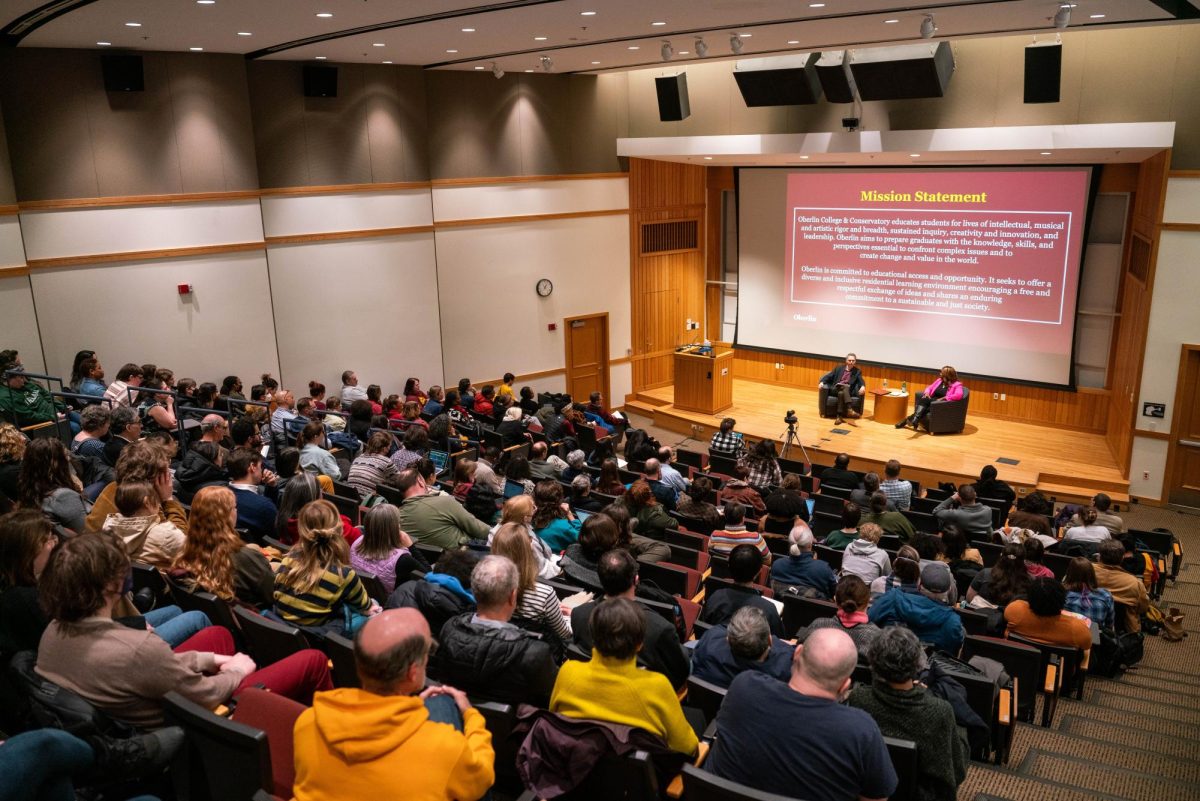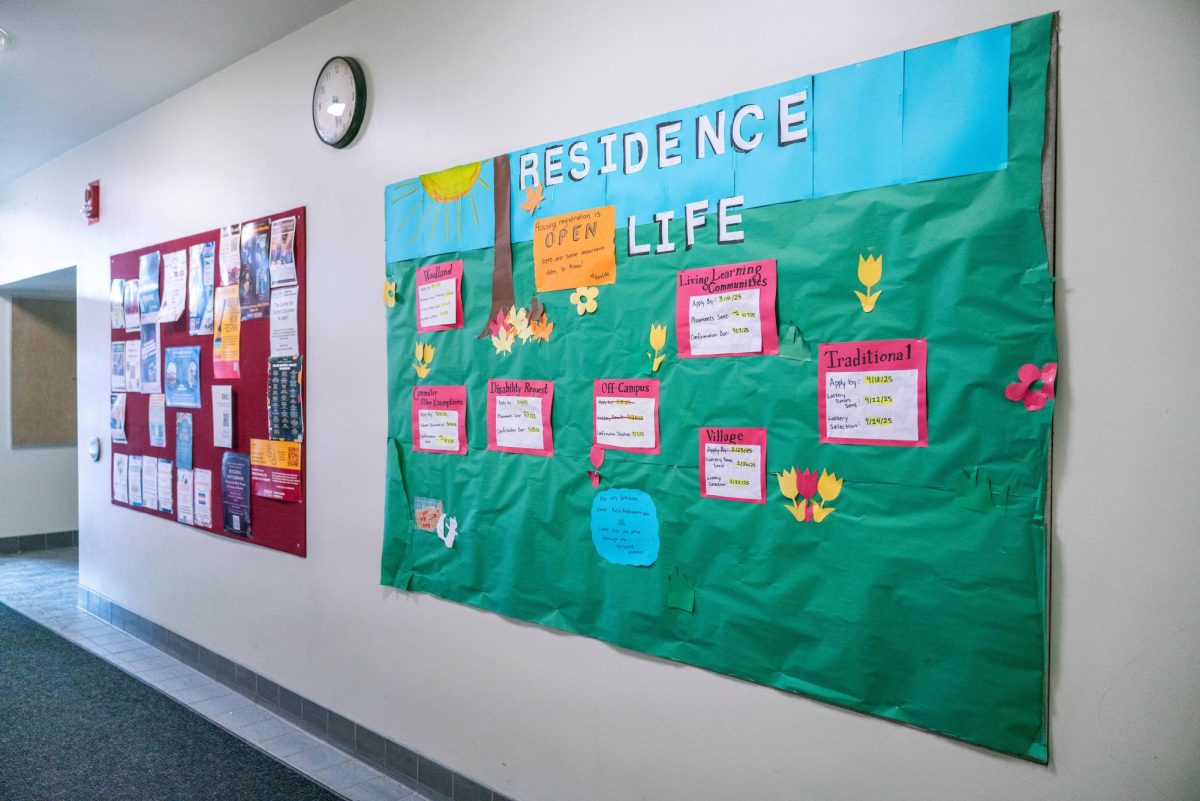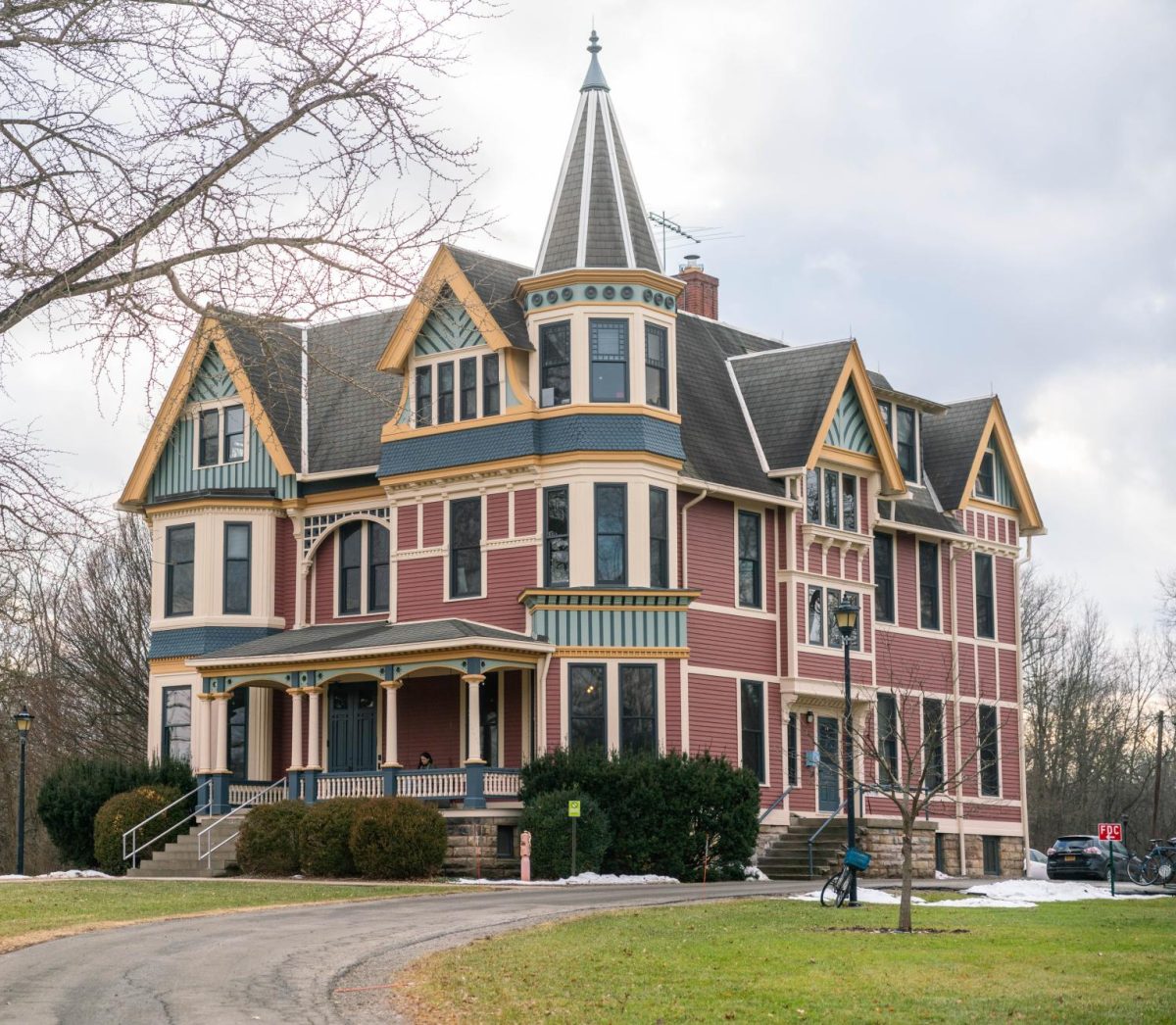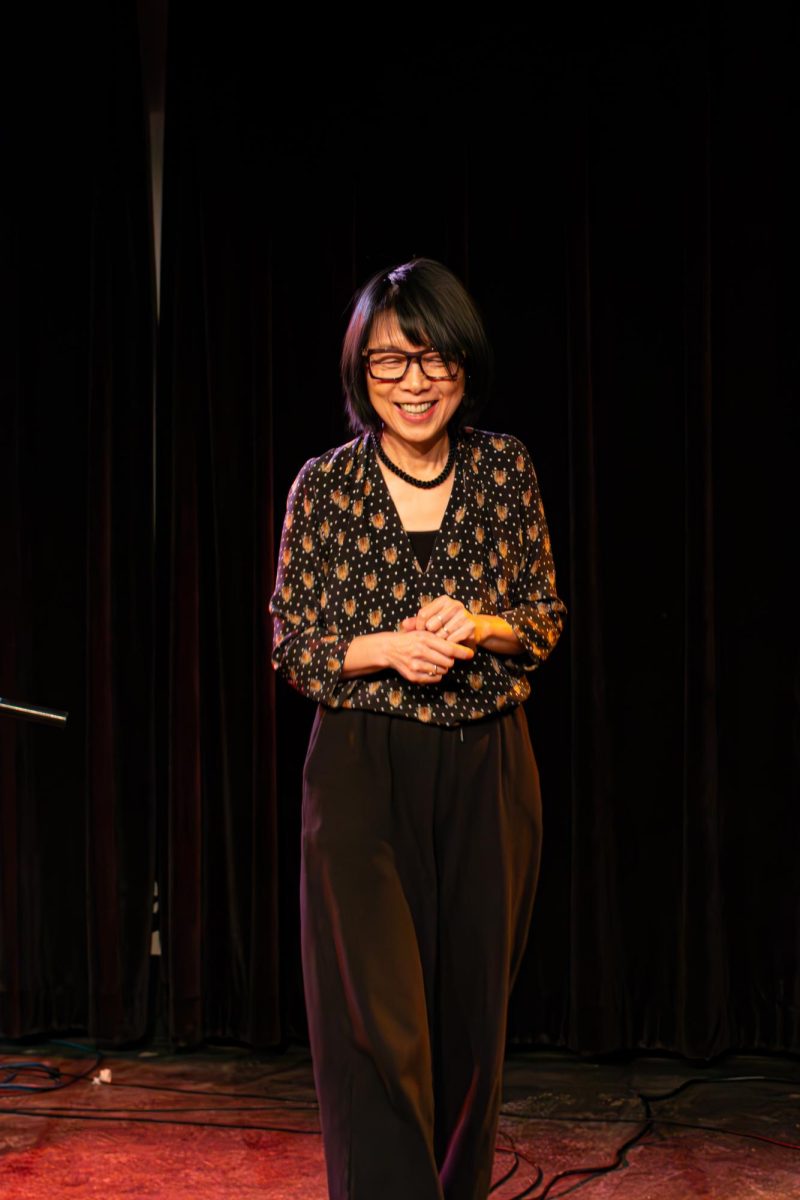Students Fight to Extend Professor Matambo’s Stay
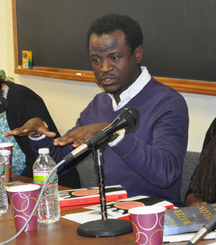
November 8, 2013
In an attempt to prolong Creative Writing Professor Bernard Matambo’s tenure, students of the Creative Writing department have drafted a petition that asks faculty, alumni and fellow students to advocate for Matambo’s permanent position as a member of Oberlin College’s professional staff. Matambo, who was originally hired for a six-year Assistant Visiting Professor position, is scheduled to leave Oberlin after the end of this year.
After learning of Matambo’s impending departure, College senior Sarah Cheshire chose to take matters into her own hands.
“He mentioned that it was kind of up in the air. It prompted me to further search for answers about how the process of allowing him to stay would unfold if it were to be successful. Then me and a couple other people met with Joyce Babyak, the dean of the College of Arts and Sciences, and she said that a lot of it comes down to funding,” said Cheshire.
“He is very popular, almost universally among students and faculty members, but it’s mostly all these procedures that come into play with this. It put on our radar the option of making a petition just to synthesize all these feelings that many people are having, about the desire for him to stay, in one cohesive document.”
The following day, she drafted a petition and posted it to Facebook. In the subsequent 24 hours, the petition garnered over 200 signatures and an additional 270 since then. According to Cheshire, the accessibility of an online petition has made it possible to reach out to people in a more effective way “other than tabling in Mudd.”
Over the past several weeks, students and faculty alike have convened to express support for his application.
“People I know who graduated recently have been sharing it on Facebook. We’ve been getting alumni signing on and emailing Joyce Babyak and Marvin Krislov, and emailing me and colleagues who Bernard worked with at Brown when he was studying for his MFA there. Then faculty members started signing on, which kind of took it to the next level and integrated it into being more than just a student-run thing,” said Cheshire.
As of yet, it is unclear how much impact this petition will have as Professor Matambo is considered for a permanent position at Oberlin.
Prolonging Professor Matambo’s tenure may in fact be infeasible for a department not prepared to hire an additional permanent professor. Departments allocate specific funds for their faculty, and creating a new position would cost the College $3,000,000. “It all has to come from somewhere,” Krislov remarked.
According to Krislov, student evaluations are a component of each faculty member’s “portfolio.”
“The faculty make the decisions about hiring,” President of the College Marvin Krislov said. “Students have a voice and they should have a voice. But ultimately the faculty make the decision.”
College sophomore and international student Matias Berretta praised Matambo’s help and guidance in learning to better connect with English.
“I finally acquired the confidence to say something without faltering, just say what I meant and say what I thought, and speak my mind. It gave me the confidence to try to write something good,” said Beretta as he described his experiences in Matambo’s Creative Writing courses.
Students have also expressed that Professor Matambo’s class discussions often turn to issues outside of poetry.
“For a poetry class, there was a lot of social discussion. We had some great discussions about race, class, and gender… [Professor Matambo] is incredibly down-to-earth and he tackles these subjects headfirst. He doesn’t skirt through touchy subjects —he acknowledges them, he faces them. That was my introduction to Oberlin. That inspired me a lot.”
Cheshire added that “there was also a lot of discussion, especially with the March 4th events last year, for the need for more diverse representation among faculty members in general away from Eurocentralism and to try to embrace the knowledge and faculty members from other places in the world, and that’s really important to Oberlin. I think this really aligns with that institutional vision.”
Professor Matambo has also been recognized as an important asset for the Creative Writing department. Dan Chaon, Pauline Delaney associate professor and program co-director for second semester, added that while each professor in the department has a particular specialty, “Bernard is great because he can do so many different things. He does nonfiction, he does prose, he does poetry, he does fiction. He’s a really valuable faculty member because he’s so versatile.”
Furthermore, Professor Matambo has helped expand the Creative Writing department’s vision.
“It’s important to us that we have a variety of different cultural perspectives and aesthetic perspectives in the department. From people like me that like comics and movies and others that know about African literature and lyrical prose poetry stuff like Bernard does.”
Additionally, as a former Creative Writing major, Professor Matambo “knows this department, he fits in really well” and can provide a greater perspective on the department. “It was different than just bringing somebody in for a year,” he said.
Although students, faculty and alumni alike have all expressed desire for Professor Matambo to stay at Oberlin, the official process of granting someone tenure remains an impediment.
According to Assistant Dean Joyce Babyak, his application is a “specific personnel issue” that cannot yet be commented on. Generally, when a professor applies for tenure, the department or program applies for a tenure-track position. The request, Babyak noted, is submitted in February. The Educational Plans and Policies Committee then evaluates the request from “a curricular perspective.” “Generally,” Babyak said in an email, “quite a few are submitted each year. EPPC rates the requests and provides a detailed account of its evaluations to the College Faculty Council.” CFC makes a decision sometime in May and determines which requests to grant. For a request that is approved, a national search is conducted the following academic year.
“Once a member of the faculty,” Babyak said, “the tenure-track faculty member undergoes a series of reviews over the course of their first five years under employment. During the sixth year, the faculty member is reviewed for tenure in an extensive review process, [and] CFC decides whether or not to grant tenure. This decision is then reviewed and subject to approval by both the General Faculty Council and the Board of Trustees.”
“I can tell you,” Krislov said, “that dean [Babyak] and I have talked about it and certainly the student views are being taken very seriously.”



